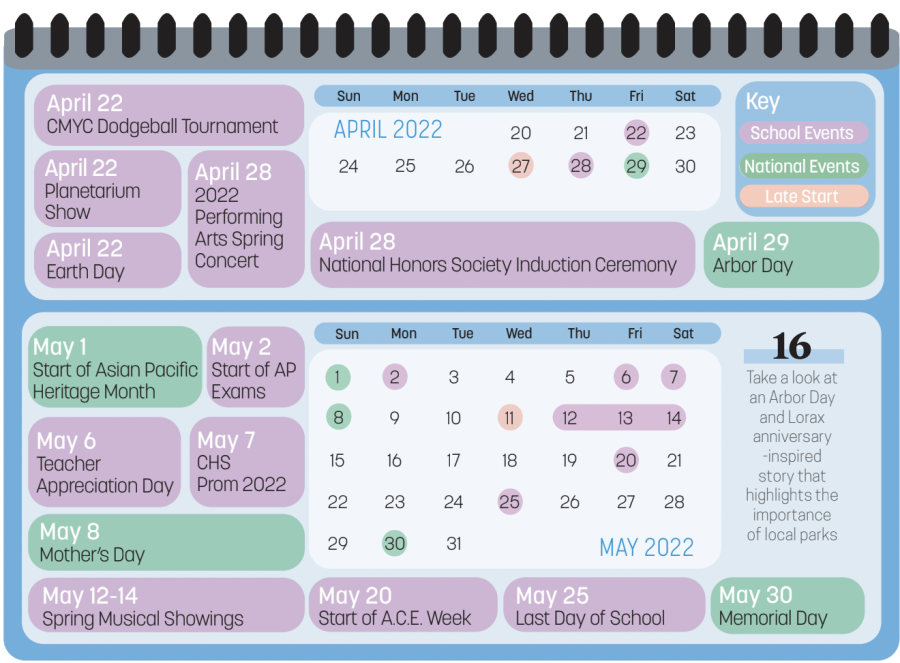“No phones at the table,” “put away the cell phone during class” and “don’t text and drive” are phrases that seem to be thrown around by parents to their children on a regular basis.
Teens have become so accustomed to having their phones with them all day that they forget to turn them off while learning, driving or even eating dinner with their family.
The inattentiveness and lack of regard for others resulting from phone fixation negatively impact teens’ everyday lives as well as the people around them.
Over the past year, smartphone adoption among American teenagers has been on the rise, increasing exponentially; consequentially, social media access on cell phones has increasingly become commonplace.
According to a recent poll by the Pew Research Center, 78 percent of teens now own a cell phone and 47 percent of these smart phones.
The increased accessibility of Internet and social media outlets coming from the popularization of smartphones has made it difficult for high school students, including Carmel’s own, to evade their negative effects.
With the click of a few keys, students are able to be in immediate contact with one another, which, at times can prove to be both beneficial and convenient. However, like most things, when handled without moderation, it can prove to be harmful.
Although it may seem to create a sense of community and togetherness, the result often has the opposite effect.
Students often tend to overlook the opportunities right in front of them because they are distracted by what is happening in their own world of texts, tweets and Instagram posts. Smartphone-using teens care more about capturing an event through the lens of their iPhone than capturing it in their mind.
Smartphone usage has generated a culture burdened by the obsessive and prodding “need” to update social media accounts upon experiencing something interesting as opposed to enjoying the moment.
Phones have not only been robbing teens of time, interaction and life experiences in the daytime, but also have continued their thievery in the night. Adolescents so addicted to spending time on their phones that they rarely turn them off when they are ready to go to bed.
Researchers from the University of Toyko have discovered mental health problems linked to teens’ late night cell phone use and sleep deprivation from midnight phone calls and texts.
Also, according to the Washington Post, only eight percent of teenagers are getting the nine hours of sleep their bodies need. When teenagers stay up to use their phones, they ultimately sacrifice the valuable time they could be using to sleep.
In addition to the mental effects cell usage has inflicted upon teens, the very nature of cell phone use has changed over the course of the 21st century.
Interactions have gone from face-to-face conversations in a stationary manner to an everlasting, constant communication that moves with teens throughout their daily lives.
This never-ending communication comes at a high and dangerous cost but fortunately has an easy solution.
If teenagers cut down on their cell phone and smartphone use by even an hour a day (especially later at night) they may be able to “live in the moment” and not rely on the small electronic device in their pocket to get through the day.
Teens would, in turn, get more sleep and have more time staying awake during school, thus improving their focus and concentration, leading to better academic performance in school.
Similarly, teens may also lower their risk of getting into a motor accident due to the decrease in the practice of texting during driving or even gain more quality time with those they love by being present in real life rather than being distracted by social media, text messages and, overall, our personal smartphones.
The views in this column do not necessarily reflect the views of the HiLite staff. Reach Taylor Acton at [email protected].































![British royalty are American celebrities [opinion]](https://hilite.org/wp-content/uploads/2024/03/Screenshot-2024-03-24-1.44.57-PM.png)




















![Review: “The Iron Claw” cannot get enough praise [MUSE]](https://hilite.org/wp-content/uploads/2024/04/unnamed.png)
![Review: “The Bear” sets an unbelievably high bar for future comedy shows [MUSE]](https://hilite.org/wp-content/uploads/2024/03/unnamed.png)
![Review: “Mysterious Lotus Casebook” is an amazing historical Chinese drama [MUSE]](https://hilite.org/wp-content/uploads/2024/03/0.webp)
![Thea Bendaly on her Instagram-run crochet shop [Biz Buzz]](https://hilite.org/wp-content/uploads/2024/03/IMG_0165-1200x838.jpg)
![Review: Sally Rooney’s “Normal People,” is the best book to read when you are in a time of change [MUSE]](https://hilite.org/wp-content/uploads/2024/03/20047217-low_res-normal-people.webp)
![Review in Print: Maripaz Villar brings a delightfully unique style to the world of WEBTOON [MUSE]](https://hilite.org/wp-content/uploads/2023/12/maripazcover-1200x960.jpg)
![Review: “The Sword of Kaigen” is a masterpiece [MUSE]](https://hilite.org/wp-content/uploads/2023/11/Screenshot-2023-11-26-201051.png)
![Review: Gateron Oil Kings, great linear switches, okay price [MUSE]](https://hilite.org/wp-content/uploads/2023/11/Screenshot-2023-11-26-200553.png)
![Review: “A Haunting in Venice” is a significant improvement from other Agatha Christie adaptations [MUSE]](https://hilite.org/wp-content/uploads/2023/11/e7ee2938a6d422669771bce6d8088521.jpg)
![Review: A Thanksgiving story from elementary school, still just as interesting [MUSE]](https://hilite.org/wp-content/uploads/2023/11/Screenshot-2023-11-26-195514-987x1200.png)
![Review: When I Fly Towards You, cute, uplifting youth drama [MUSE]](https://hilite.org/wp-content/uploads/2023/09/When-I-Fly-Towards-You-Chinese-drama.png)
![Postcards from Muse: Hawaii Travel Diary [MUSE]](https://hilite.org/wp-content/uploads/2023/09/My-project-1-1200x1200.jpg)
![Review: Ladybug & Cat Noir: The Movie, departure from original show [MUSE]](https://hilite.org/wp-content/uploads/2023/09/Ladybug__Cat_Noir_-_The_Movie_poster.jpg)
![Review in Print: Hidden Love is the cute, uplifting drama everyone needs [MUSE]](https://hilite.org/wp-content/uploads/2023/09/hiddenlovecover-e1693597208225-1030x1200.png)
![Review in Print: Heartstopper is the heartwarming queer romance we all need [MUSE]](https://hilite.org/wp-content/uploads/2023/08/museheartstoppercover-1200x654.png)























![Review: Ladybug & Cat Noir: The Movie, departure from original show [MUSE]](https://hilite.org/wp-content/uploads/2023/09/Ladybug__Cat_Noir_-_The_Movie_poster-221x300.jpg)

![Review: Next in Fashion season two survives changes, becomes a valuable pop culture artifact [MUSE]](https://hilite.org/wp-content/uploads/2023/03/Screen-Shot-2023-03-09-at-11.05.05-AM-300x214.png)
![Review: Is The Stormlight Archive worth it? [MUSE]](https://hilite.org/wp-content/uploads/2023/10/unnamed-1-184x300.png)



